 Petzlover
Petzlover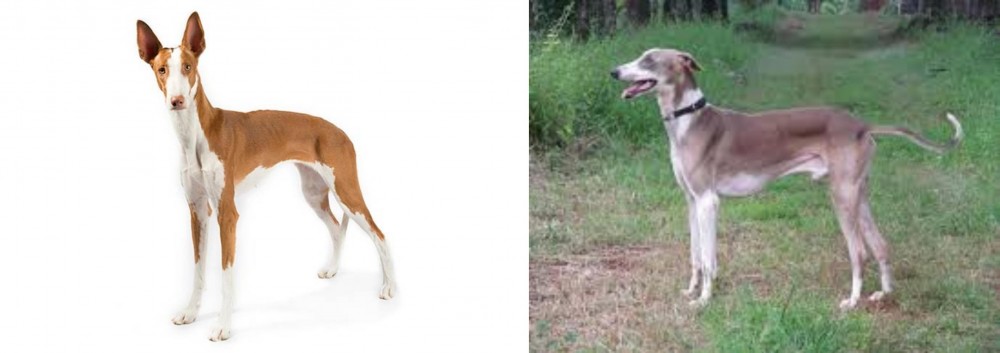 Ibizan Hound is originated from Spain but Mudhol Hound is originated from India. Both Ibizan Hound and Mudhol Hound are having almost same height. Both Ibizan Hound and Mudhol Hound are having almost same weight. Both Ibizan Hound and Mudhol Hound has almost same life span. Ibizan Hound may have more litter size than Mudhol Hound. Ibizan Hound requires Low Maintenance. But Mudhol Hound requires Moderate Maintenance
Ibizan Hound is originated from Spain but Mudhol Hound is originated from India. Both Ibizan Hound and Mudhol Hound are having almost same height. Both Ibizan Hound and Mudhol Hound are having almost same weight. Both Ibizan Hound and Mudhol Hound has almost same life span. Ibizan Hound may have more litter size than Mudhol Hound. Ibizan Hound requires Low Maintenance. But Mudhol Hound requires Moderate Maintenance
 This lean, speedy and agile hound dog looks and acts very much like a Pharaoh Hound except the Ibizan Hound is larger and a different color. The image of dogs that look like the Ibizan have been seen since 3400 BC in Egypt. The dogs were probably brought by sailors to Ibiza and surrounding islands. They came about 700-900 BC. It is believed that they actually came for the island of Elvissa and Spain, where they speak Catalan. It was also known in France as the le chanigue. There job was the same. To hunt rabbits.
This lean, speedy and agile hound dog looks and acts very much like a Pharaoh Hound except the Ibizan Hound is larger and a different color. The image of dogs that look like the Ibizan have been seen since 3400 BC in Egypt. The dogs were probably brought by sailors to Ibiza and surrounding islands. They came about 700-900 BC. It is believed that they actually came for the island of Elvissa and Spain, where they speak Catalan. It was also known in France as the le chanigue. There job was the same. To hunt rabbits.
They were fast hunting greyhound type dogs. They hunted for rabbit for the Ibizaners and themselves. These dogs hunt by day and by night. They are not just sight hounds, they also hunt by smell and hearing, in packs or by themselves. They use their sight to find and corner the prey. Then they act like retrievers and bring it back to the hunter. Their function and look is very similar to several other dogs such as the Pharaoh Hound, the Greyhound, the Portuguese Podengo, the Cimeco dellEtna and the Podence Canario. The Ibizan is larger than any of these, but all these breeds are considered to be “primitive”.
Within the breed itself there are smooth, wire and longhaired Ibizan Hounds. The Smooth is by far the most common. A great jumper, nimble runner built for stamina, the Ibizan Hound was just what the island people needed. The breed lived in isolation on the island for many centuries, under a variety of rulers including the Romans, Egyptians, Vandals, Carthaginians, Chaldeans, Arabs and Spanish. Because of the harsh island conditions, the farmers only allowed the best hunters among the Ibizan Hounds to procreate thus assuring a breed that is unchanged from ancient stock.
By 1950 the Ibizan Hound was brought to America. Because this dog is not a pet but a working machine, it took awhile for the breed to become popular enough to be recognized by the American Kennel Club (AKC) in 1979. Still the Ibizan Hound is a rare breed with the female being a better hunter than the male. One of the most common activities of this breed in the U.S. is lure coursing. These events are sponsored by AKC and ASFA as well as racing events in the NOTRA and LGRA.
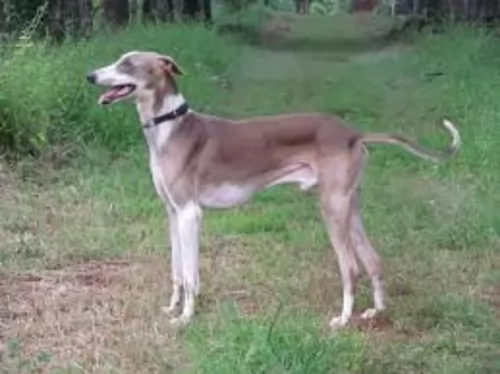 This seems to be the breed of many names. The Mudhol Hound comes from India and has been called the Caravan Hound, the Pashmi, the Karvanit, the Karwaani and the Pisuri Hound. Like so many other Indian breeds, the Mudhol Hound bears a strong look of the Greyhound. He is a sight hound and as such is lean and fast. He is ancient, healthy and loves his people.
This seems to be the breed of many names. The Mudhol Hound comes from India and has been called the Caravan Hound, the Pashmi, the Karvanit, the Karwaani and the Pisuri Hound. Like so many other Indian breeds, the Mudhol Hound bears a strong look of the Greyhound. He is a sight hound and as such is lean and fast. He is ancient, healthy and loves his people.
The ancestors of the Mudhol include the hounds bred by the tribes of Bedar near Mudhol and Halagali. In Maharashtra the Maratha warriors were also breeding hounds which are included in the Mudhol Hound lineage. It is believed that there is Tazi and Saluki heritage in the Mudhol as well.
All of these Indian hounds were good at guarding, hunting and as companions. Then the King of Mudhol began to breed them specially for hunting and succeeded in developing a sleek, slender dog. The King of England at the time, George V, was so impressed he dubbed them the Hounds of Mudhol.
The Mudhol Hound hunts rabbits and other small animals with their incredible sight. No matter if the breed was on a postage stamp in 2005 and is a great family companion, it is first and foremost a working dog. He was specifically bred for the tough working conditions in the mountains of India. They are courageous, loyal and graceful. They are committed to their people but a little standoffish with anyone else and make good guard dogs.
They were used by the Indian Army as border protection and surveillance dogs. They use them for testing of their veterinary corps. They have been deployed by the Army in Kashmir and Jammu in 2017, just as they were centuries ago. They were effective at taking down soldiers and horses alike.
They were also chosen for breeding at the Canine Research and Information Centre, part of the Karnataka Veterinary, Animal and Fisheries Sciences University in Bidar. With a very high prey drive they can get along with other dogs their size but cannot be trusted with smaller pets.
The Indian National Kennel Club lists them as the Mudhol Hound while the Kennel Club of India recognizes them as the Caravan Hound.
 The breed is agile, elegant, athletic and graceful. At the same time the Ibizan Hound is a fierce hunter travelling at unreal speeds to catch his rabbit prey. They are a hardy breed with a lean and long neck, and a lean, muscled body with laid back shoulders. The ears are specific to the breed, with a broad base leading to long, beautiful ears. They have tan eye rims, nose, foot pads, and ears. The eyes themselves are an amber with an intelligent and alert expression.
The breed is agile, elegant, athletic and graceful. At the same time the Ibizan Hound is a fierce hunter travelling at unreal speeds to catch his rabbit prey. They are a hardy breed with a lean and long neck, and a lean, muscled body with laid back shoulders. The ears are specific to the breed, with a broad base leading to long, beautiful ears. They have tan eye rims, nose, foot pads, and ears. The eyes themselves are an amber with an intelligent and alert expression.
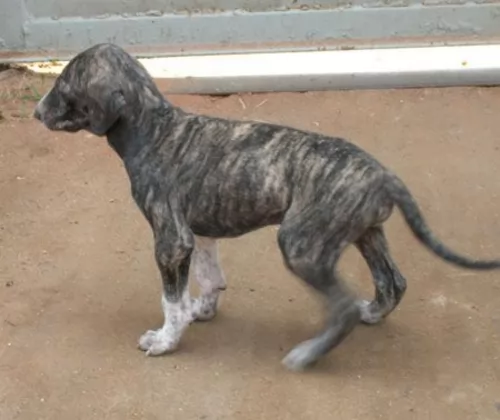 The Mudhol Hound is a good looking sight hound. Slender, sleek, muscular. They have narrow, long heads with a muzzle that tapers. They have long and powerful jaws with a large black nose. Their eyes are oval, large and brown with a look that pierces, and they have long, muscular, and clean shoulders. The legs are straight, long and strong with a broad, muscular, long back. Like most sight hounds when you seen them coming at you straight on, they have the appearance of being one dimensional.
The Mudhol Hound is a good looking sight hound. Slender, sleek, muscular. They have narrow, long heads with a muzzle that tapers. They have long and powerful jaws with a large black nose. Their eyes are oval, large and brown with a look that pierces, and they have long, muscular, and clean shoulders. The legs are straight, long and strong with a broad, muscular, long back. Like most sight hounds when you seen them coming at you straight on, they have the appearance of being one dimensional.
There are two types of coat and many acceptable colors. The coat can be silky on the tail, legs and ears or it can be completely smooth from head to toe. The coat can be grey, black, cream, red, fallow, and fawn. It can also be one of these colors and a small amount of shite blended it.
 They love children but be careful they do not knock them over and don’t let the children play to rough.
They love children but be careful they do not knock them over and don’t let the children play to rough.
Exceptional jumping ability, speed and stamina.
Must have a large fenced yard and a place to run full out.
Very intelligent with excellent learning ability.
 Despite being isolated on the islands for all those years, the Ibizan Hound has several tendencies toward medical issues:
Despite being isolated on the islands for all those years, the Ibizan Hound has several tendencies toward medical issues:
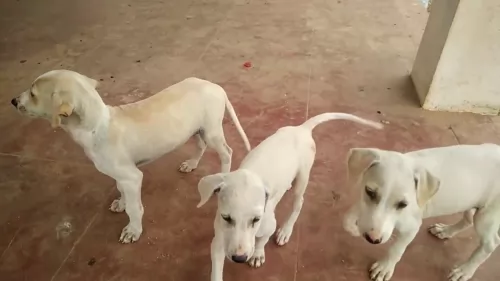 Like so many of the old breeds raised in a lot of isolation, the Mudhol is a very healthy breed. There are no genetic illnesses and they have a long line of dogs able to deal with the weather in India and avoid any sickness. However, they do have a few conditions they are prone to.
Like so many of the old breeds raised in a lot of isolation, the Mudhol is a very healthy breed. There are no genetic illnesses and they have a long line of dogs able to deal with the weather in India and avoid any sickness. However, they do have a few conditions they are prone to.
 Your Ibizan Hound is an athlete and needs to be fed like one. As a puppy he needs high quality breed or group (hound) specific food. Feed her 3-4 times a day based on calories. A puppy needs about 866 calories each day.
Your Ibizan Hound is an athlete and needs to be fed like one. As a puppy he needs high quality breed or group (hound) specific food. Feed her 3-4 times a day based on calories. A puppy needs about 866 calories each day.
If your dog participates in sports as adults, they need between 1450 and 2900 calories each day. The exact amount depends on how much activity the dog is engaged in. Feed at least 2 times a day.
Great speed and stamina
Your Ibizan Hound is a working athlete. He needs a lot of exercise and he needs a chance to run full out so access to land is essential. It can be a large back yard, or it can be a dog park. No matter what it is, it is essential for the Ibizan Hound. She will also require long walks at least a couple times a day. However, do not over exercise your puppy. They are great jumpers as well as runners.
The sport of lure coursing was made for the Ibizan in the same way that it was made for the Greyhound. They are good at Flyball and agility as well.
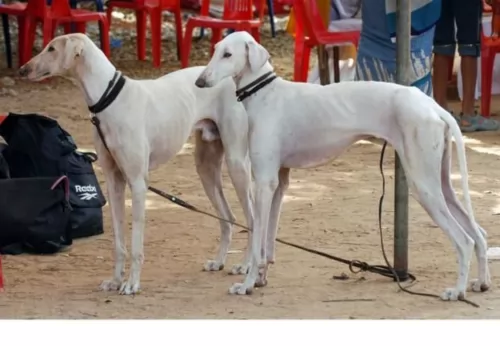 The Mudhol puppy needs a high quality dry food. They should eat three to four times a day in smaller portions. A total of 3 to 3.5 cups per day.
The Mudhol puppy needs a high quality dry food. They should eat three to four times a day in smaller portions. A total of 3 to 3.5 cups per day.
The adult Mudhol should eat about two and a half cups of high quality dry food twice a day. Do not overfeed the Mudhol and don’t let him run right after eating.
Outstanding speed and stamina
This is a high energy, active dog that needs a lot of space and exercise. She needs to be able to run freely as long as she wants at least a couple times a day. He has incredible endurance and a very high prey drive. They must be in a fenced area unless on a leash. They are great at lure coursing, fly ball and agility.